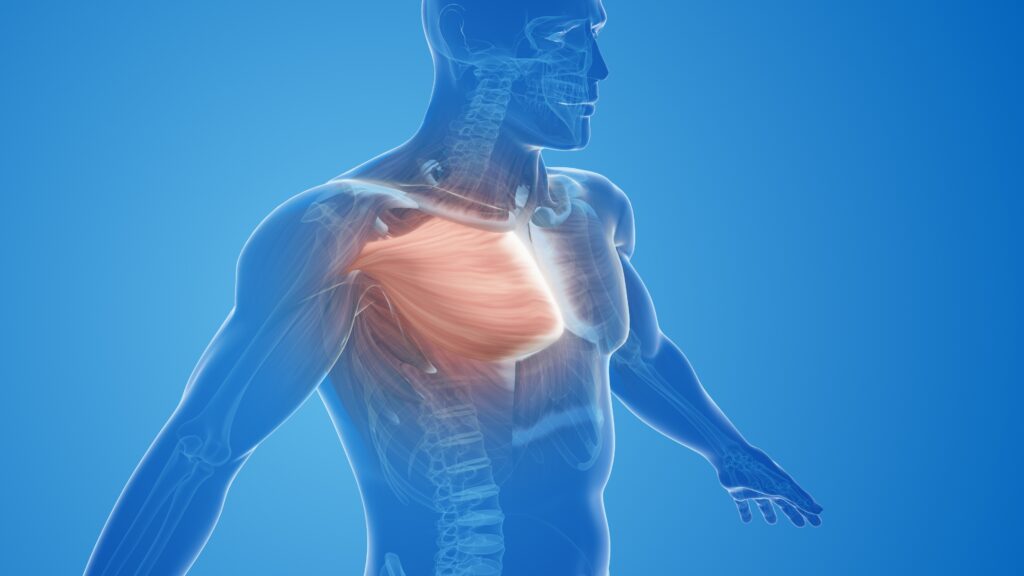Table of Contents
Feeling tired after using the sauna is a normal experience. If you wonder what this sudden onset of exhaustion means and why do saunas make you tired? This article is for you.
In this article, we will explain in detail why using the sauna is great for your health mentally and physically, but it also leaves you feeling sleepy and tired but isn’t something to worry about.
Since being popularized by the Finnish, sauna culture has spread globally. Loved for their holistic health benefits and the relaxation they offer, many people flock to these sweat rooms for physical and mental relief.
Types of saunas
Dry saunas
Dry saunas are generated by burning wood, dry saunas heat your body by heating the air around the room.
This dry sauna is popular in Scandinavian culture and slowly increases in temperature. They are the hottest of the three saunas, making them one of the most difficult to tolerate.
Steam rooms
These saunas are usually powered by a generator filled with water and heated to boiling temperatures. Which then fills the entire room with steam, creating a wet and moist environment.
Infrared saunas
A more recent invention is the infrared sauna. A carbon heater transmits infrared light and heat waves that heat your body from the inside out instead of outside. This heating method allows the warmth to penetrate deeper into the body, bringing benefits such as better sleep and clear skin. Because of the lower temperatures used, this might be the most comfortable kind of sauna to use.
Getting to know and understand the different kinds of saunas will ultimately help you find the right sauna for your experience, helping you avoid certain health issues and gain the most out of the experience.
Why does the sauna make you tired? Possible reasons
Being exposed to high temperatures tends to make most people tired; this is the case when you go to saunas. However, you might wonder how this benefits your mind and body or whether it’s a good idea to visit your local sauna.
So, what are the physical benefits you will get from regular sauna use? And what should you keep an eye out for to prevent any negative side effects when you decide to try?
The effects of frequent dry sauna use
Although saunas have been around for ages and have variations within multiple cultures, including Turkish and Russian, this article will focus on exploring the benefits and reasons for your post-sweat sesh exhaustion caused by Finnish dry saunas, which is the most popular type of sauna.
Saunas have become a popular addition to medical consultations with osteopaths to help treat sports injuries and conditions such as rheumatoid arthritis by decreasing muscle stiffness and general pain (1).
Why enjoying this relaxing pastime may leave you feeling tired? Using a sauna means that many physiological processes occur in your body—activation of the processes listed below means that your body has to use a lot of energy to regulate itself.
You sweat (A LOT)
This may seem obvious, but being in a sauna means losing fluid at a rate your body usually wouldn’t. Traditionally, Finnish dry saunas run between 80°C–100°C with 10% to 20% humidity. This exposure to higher-than-average temperatures and humidity means that your body has to work harder at a constant space to ensure thermoregulation occurs (2). This takes a lot of energy from your body, contributing to your feeling tired quickly after being in the sauna.
You get dehydrated quickly
When you sweat excessively, your body is losing a lot of fluid. With our bodies consisting of about 50-60% water, it’s an essential fluid to carry nutrients to various parts of the body while helping with waste excretion (3). When you’re losing water rapidly in a sauna, the body lacks the fluid it needs to perform these functions. This dehydration can make you feel tired or dizzy.
Your heart rate increases
When your internal temperature increases, your heart rate does, too, making your blood vessels expand and relax to allow increased blood flow (4). This creates increased blood flow to the skin’s surface so your body can release heat through sweating and thermoregulation. As with the other processes, this takes a lot of energy from your body, leaving you tired.
While using a sauna is a wonderful method of staying healthy, it’s important to remember that to withstand the heat, your body has to do a lot of work to keep you regulated. This means that you’ll probably feel tired after leaving the sauna, but that it’s completely normal.
Potential health benefits of sauna
Even though there are various kinds of saunas, their effects on the body are similar. When your heart rate increases in the sauna, it triggers the relaxation of your blood vessels. This knock-on effect increases circulation and often has a similar physical effect as low to moderate exercise.
These physical processes, especially when experienced frequently, have been shown to have some health benefits.
Pain relief
Because of the increased blood circulation, saunas may promote the reduction of pain, as the increased circulation will help ease muscle and joint stiffness while promoting flexibility and giving you a sense of relaxation and tension relief.
Often used by osteopaths and chiropractors, saunas can also be used to aid in the reduction of stiffness and inflammation brought on by osteoarthritis and rheumatoid arthritis, as well as chronic pain (5).
Helps you relax and de-stress
When you’re in a sauna, the increased heat you experience will help your blood flow increase, too. This increased circulation helps your muscles feel more relaxed, helping you mentally feel at ease.
Skin health
Ever noticed that your skin looks healthier and more glowy after some time in the sauna?
If you regularly use the sauna, you might find your skin looking healthier over time. This is because frequent exposure to saunas has been found to create a healthier, stronger skin barrier, better capacity by the skin to hold water as well as decreased sebum in the skin, which helps your skin stay clearer and avoid breakouts (6).
Asthma
For asthma sufferers, using saunas can be a bit tricky. Generally, steam rooms might not be a great option as they may cause the chest to feel more constricted, but dry or infrared saunas may be fine. You might consider using a dry sauna if you have asthma, as they have been found to loosen phlegm and mucus while opening the airways (7).
Cardiovascular health
The reduction in stress levels found after using a sauna may also contribute to lower levels of heart disease. One study of 2300 sauna users over 20 years found that the people who used it frequently (about five times a week) were less likely to die from a stroke or heart disease (8).
Using a sauna for its many health benefits is a great way to integrate holistic well-being into your life. Getting a good sweat in will help you feel healthier overall regarding cardiovascular health, skin well-being, and general relaxation.
Side effects of sauna you should be aware of
Even though the sauna can offer many health benefits, there are also some negative side effects to be considered. If you suffer from serious health conditions, it’s always best to check with a medical professional before stepping into one.
Blood pressure (hypotension)
You may notice other sauna users switching from the steaming or dry heat of a sauna to either an ice bath or a cool pool. Although cooling off instantly like this may sound good, it could be potentially harmful, especially if you suffer from health issues related to blood pressure because the exposure to heat increases circulation to the skin; it also lowers blood pressure as the veins relax to allow this increased blood flow (9).
This back and forth could cause dizziness and potentially fainting.
Dehydration
The sweating you’ll experience while using a sauna will result in rapid fluid loss. This loss can lead to dehydration and the loss of important nutrients such as magnesium, sodium, and iron.
Feeling dizzy
Because of the increased heat and loss of fluid experienced during a sauna, you may feel light-headed and dizzy after using one.
Who should avoid going to the sauna, and why?
Saunas can bring many wonderful health benefits, but there are also reasons you should not use the sauna or should check with your doctor before you try.
You’re pregnant
If you’re pregnant, many doctors will recommend you stay away from excessively hot baths and saunas. The reason is that prolonged exposure to the heat could cause birth defects in your baby or complications for the fetus. It’s especially advised against in the first 12 weeks (10).
Low blood pressure
Due to the increased circulation caused by the dilation or relaxation of your blood vessels in the heat, if you have pre-existing conditions that result in low blood pressure, it’s usually recommended that you avoid saunas and exposure to heat. This prolonged exposure to your pre-existing condition could lead to fainting and injuries and is dangerous as the heart will have to work harder to maintain a steady blood flow. For those with an already compromised situation, this could cause dangerous complications (11).
Before and after sauna: Things you should do and avoid
While you want to enjoy the benefits of a sauna, you should know how to prepare for your visit and optimize your time there. These key practices will help the various parts of your body that are affected by the loss of fluid and exposure to heat stay safe and in the best condition.
Stay hydrated
As mentioned before, being in an extremely heated environment where rapid fluid loss is occurring, it’s important to stay hydrated and make sure that you drink water regularly during your time in the sauna.
Take breaks
It’s not worth it trying to push yourself to see how long you can stay in the sauna or what the hottest temperature you can endure would be. The challenge may sound exciting but can result in lightheadedness and possibly fainting and injury. It can also result in nausea, so taking breaks to get fresh air is crucial to having an enjoyable experience.
Seek medical advice
If you suffer from any conditions mentioned earlier or any other serious health problems, it’s always a good idea to check with your doctor before using a sauna; this can prevent emergencies and injuries.
Be mindful
Pay attention to your body and how you’re feeling. If you catch yourself suddenly feeling unwell, you know that it’s time to leave.
Being mindful of how your body feels during your trip to the sauna is a good way to create a relaxing and harmonious experience. Staying hydrated and taking breaks will help you avoid any negative side effects while reaping all the benefits of sweating.
Is it good to sauna every day?
Studies have shown that it is safe to use the sauna daily. However, you need to be extra vigilant to stay hydrated.
Should you drink water during a sauna?
Yes, it’s strongly advised to stay hydrated during your time in the sauna, as sweating will cause a lot of fluid loss, leading to dehydration, dizziness, and fainting.
Can I bring my phone to a sauna?
It’s not advised to bring your phone inside the sauna. Usually, the temperatures of saunas far exceed the operational temperatures of most phones, making it unsafe. Also, in many cultures, saunas are seen as spaces for relaxation and unwinding, making it socially frowned upon to use your phone.
How long do you have to stay in the sauna to detox?
The recommendation is to be in the sauna for 15-20 minutes, especially when used daily. This duration will allow your body to experience its benefits.
Summary
Yes, saunas make you tired, but the benefits are worth it. When used safely, regular sauna visits will contribute to cardiovascular health, decreased pain levels, better skin health, and an overall sense of relaxation and healing both mentally and physically.
They can also be seen as healthy, alternative ways to facilitate physical healing, especially if you have injuries.

















Comments
0